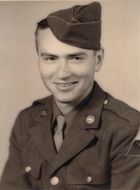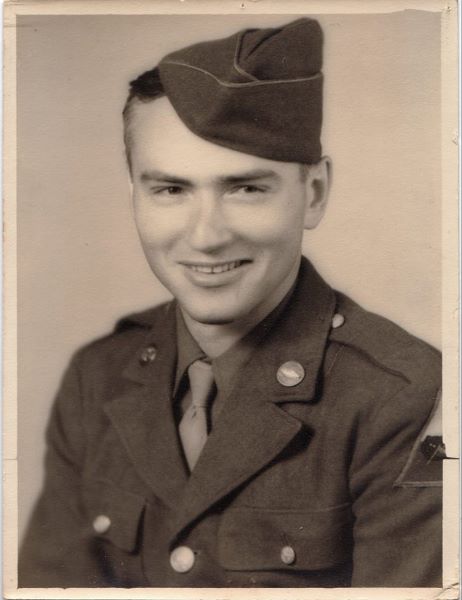Larkin G. Dilbeck was born in 1919. When he was just shy of two, his father abandoned him, his mother and his four older brothers. His mom did the best she could to support the family.
Larkin Dilbeck didn’t start high school until he was 18. Days he should have spent in the classroom were spent farming.
When he was 20 he signed up for the Civilian Conservation Corps, a job creation measure under President Franklin D. Roosevelt’s New Deal. The CCC provide public works jobs for young men so they could send money back to their families during the Great Depression.
On December 3, 1942, Larkin Dilbeck was drafted into the Army. He was sent to Wales where he did clerical work in a post office.
Dilbeck wed in 1943 while he was on furlough and was married until his wife's death in 1989.
When Larkin shipped to the European Theater he was assigned to the 740th Tank Battalion which was attached to the 82nd Airborne Division, 1st U.S. Army during the Battle of the Bulge. Assigned to the 740th Tank Battalion, though he had never worked in one. For six weeks Larkin Dilbeck fought in one of the fiercest battles of the war as a tank gunner. A few weeks after it was over, he narrowly escaped death once again.
He was in the head tank when she went up to the Siegfried Line and German artillery was just falling all around like rain. A shell fell through the top of the tank, and though he and the driver jumped out just in time, the other two crew members were blown to pieces. The driver’s face was badly burned, and Dilbeck was temporarily deafened and lost the feeling in his left leg.
His combat duty ended when he developed appendicitis. The Army flew him on a plane in a hammock to Paris for surgery, but he had done enough to earn a Purple Heart and a Presidential Unit Citation.
After the war, the family moved to Arlington in 1958 and Larkin Dilbeck worked for decades as an American Airlines ticketing agent.
|



